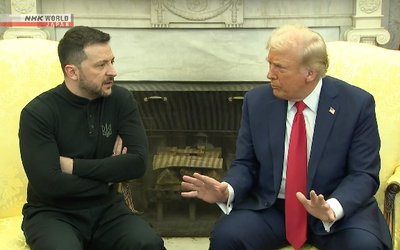More on International






Until the Security Council’s brief meeting on Nepal on January 5, some of the western countries had not completely ruled out the possibility of discussing the extension of the United Nations’ mission in the country.“It all depends on how things will unfold, but as of now we have not closed that option yet,” a senior western diplomat in New York had said as ambassadors of the United States of America and the United Kingdom in Kathmandu held meetings with both the government and the Maoists.
The western powers, that had in the past faced resistance from China and Russia on the issue of expanding UNMIN’s mandate, knew that they had one more reason to be cautious this time: India.
Nepal’s immediate southern neighbour was going to be present in the Security Council as one of the five newly elected non-permanent members.
“We will have to brief these new members the situation about Nepal’s peace process and what the Maoists and the government are saying about UNMIN,” a highly placed source at the UN headquarters had told the BBC.
“More importantly, we will have to see what India has to say on whether UNMIN’s mandate needs to be extended or not.”
The caution apparently had to do with what has been widely viewed as India’s resentment on the presence of a UN political mission in its backyard although New Delhi has made no such comment public.
Nor has it reacted to the recent widely covered media reports on its “role” to get UNMIN out.
Surprisingly to some, the Security Council meeting on January 5, was quite brief as no member country objected to the winding up of the UN mission.
The closed door meet of the council thanked UNMIN chief Karen Landgren who had then just presented in the open meeting what later became a controversial report on Nepal’s peace process.
“Since the council got no request from the government on the extension of UNMIN’s mandate, there was no way even the willing countries could raise their voice,” a source present at the meet said.
“Even if they did, those who did not want UNMIN to continue would have argued that the request made by the Maoists alone would not justify any reconsideration.”
After all, how could the “nay-saying” countries forget that some western countries were earlier quite quick to point at the “one-sided” letter by the government hinting at getting the army off the UNMIN hook?
And now joining the countries on such high alert in the Security Council was India whose interest and influence in Nepal is something the western powers have well recognised.
“But India did not have to say much about UNMIN in the security council meet as there was no objection when the president mentioned that the UN mission was closing down,” said the source.
“The Indian representative, however, did mention that New Delhi had been watching Nepal’s peace process quite closely and that it was worried about what would now happen to the Maoist fighters and their arms.”
Outside the Security Council and inside the UN headquarters in New York, however, top bureaucrats in the world body were saying enough is enough.
“There is only so much you can take,” said one senior official not wanting to be named. “You cannot allow yourself to become a scapegoat all the time while the fight is between other players.
“We are glad that we have been given the marching orders, and so we are already preparing for it.”
Having lost the battle for a broader mandate to “help Nepal’s peace process”, the UN had found itself in a hostile terrain.
The government and the ruling parties were mincing no words to say it was not wanted.
As the higher management at the UN thought exiting before the bad blood got worse would be wise, the western powers appeared to have factored in what their valued strategic and economic allies in the region -- India and China – wanted.
The “meeting point” between the western and regional powers must have facilitated the Security Council president, Bosnian ambassador Ivan Barbalic, to draft his statement announcing the closure of the UNMIN.
By the time the draft was circulated among Security Council member countries for their comments, it was almost confirmed that there would be no opposition.
“The mood we saw during the January 5 meet of the security council continues to be the same among member countries,” the source in the council had said last week. “Therefore, we know the January 14 meeting of the Security Council would only be a formality to adopt the president’s statement.”
That message was quickly picked up by the major powers in Kathmandu.
The ruling parties were toasting cheers while the main opposition was left licking its paw.





